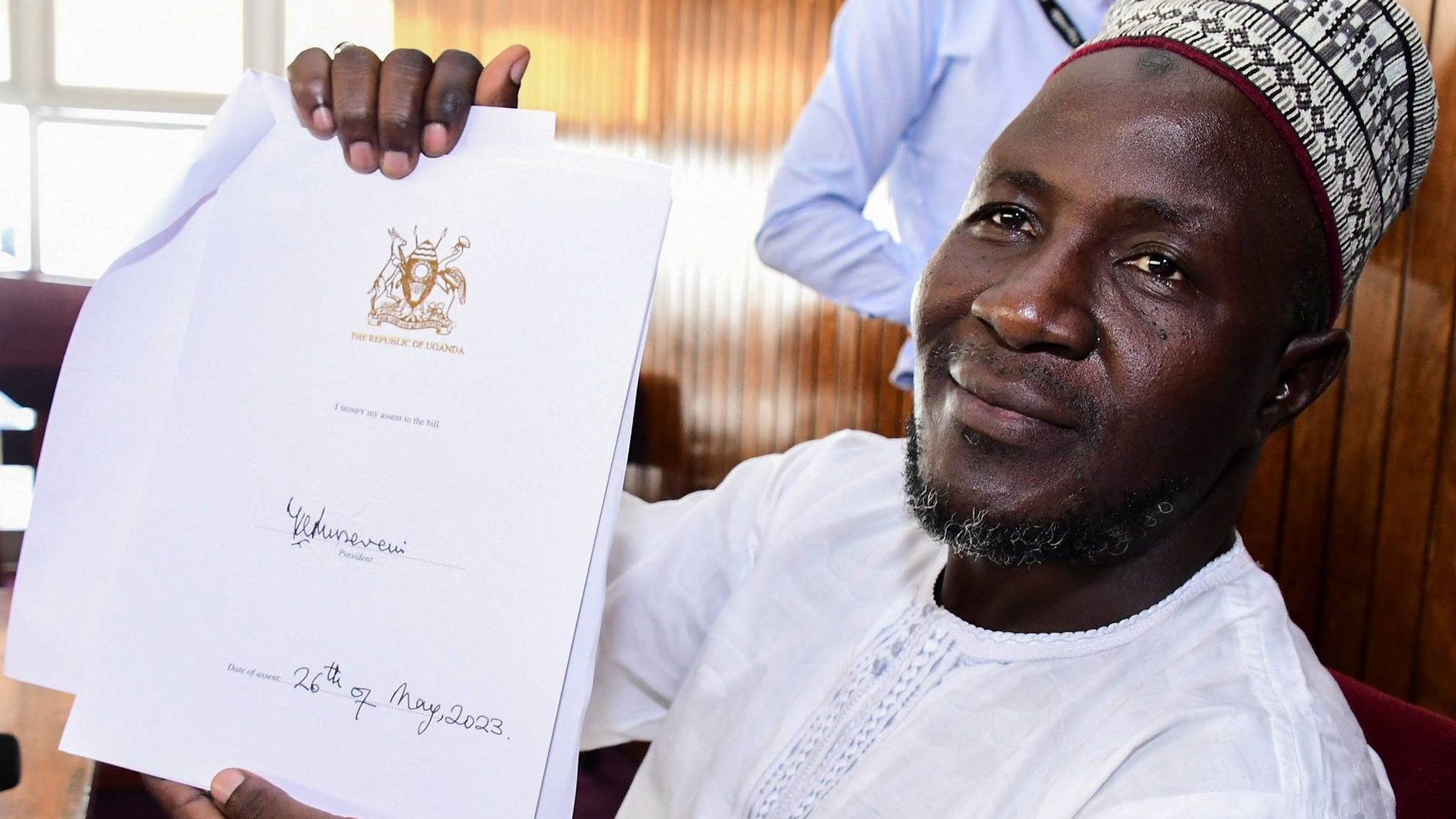Ugandan President Yoweri Museveni has signed a new anti-LGBTQ+ bill into law, which declares any ‘engagement in acts of homosexuality’ as a punishable offence. It proves that LGBTQ+ rights and legal protection are still intense issues that must be fought for.
Uganda has passed a controversial new bill that imposes a range of harsh punishments for homosexual acts and any alliance with LGBTQ+ causes.
Signed on 26th May 2023 by Ugandan President Yoweri Museveni, the bill includes a potential death penalty punishment for what it deems ‘homosexual acts’, with a particular concern for the spreading of HIV. It also pushes long prison sentences for ‘promoting’ homosexuality or supporting members of the LGBTQ+ community.
The bill was passed with almost unanimous support in Ugandan parliament when it was first proposed in March. An amended version was passed in May with 371 MPs voting in favour.
In a statement, Uganda’s parliament speaker Anita Among said that ‘we have a culture to protect,’ and that ‘the Western world will not come to rule Uganda.’
What does this bill include?
While it has had several revisions since it was first drafted in March, nearly all of its original rules remain in place.
These include life in prison for any person convicted of grooming or trafficking children for homosexual activities. It also says that individuals or institutions which support or fund LGBTQ+ activities or organisations, including through publishing, broadcasting, or media material, can face prosecution.
Media groups, journalists, and publishers could face imprisonment for publicly advocating for gay rights or ‘promoting homosexuality.’ Property owners could face jail time if they use their premises for homosexual acts or ‘activities.’
Uganda already condemns homosexuality, but this new bill means that those helping or assisting LGBTQ+ causes can also be arrested and prosecuted. In effect, it makes governmental laws more wide-reaching, affecting anyone affiliated with the LGBTQ+ community.




















